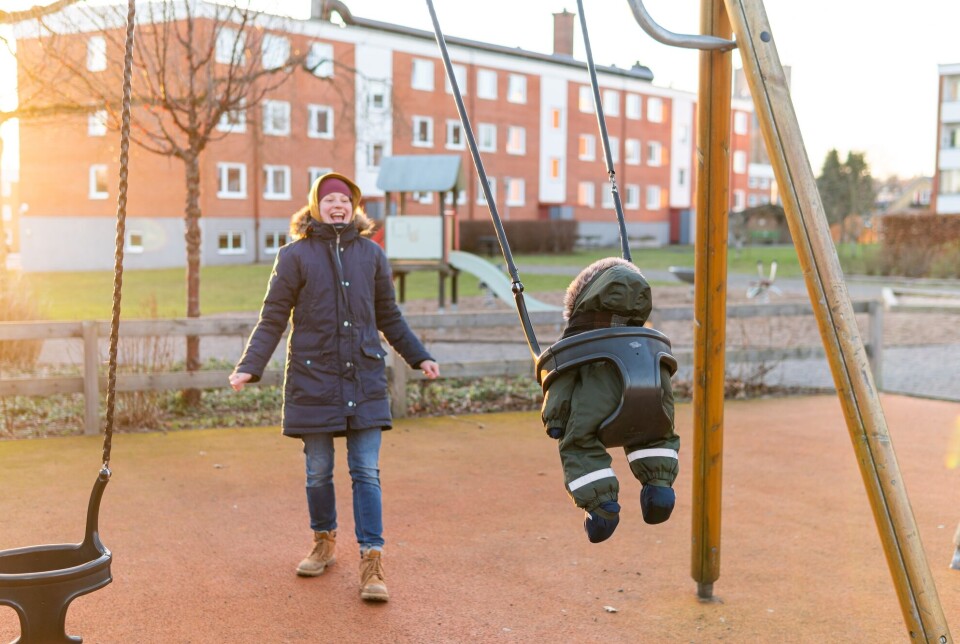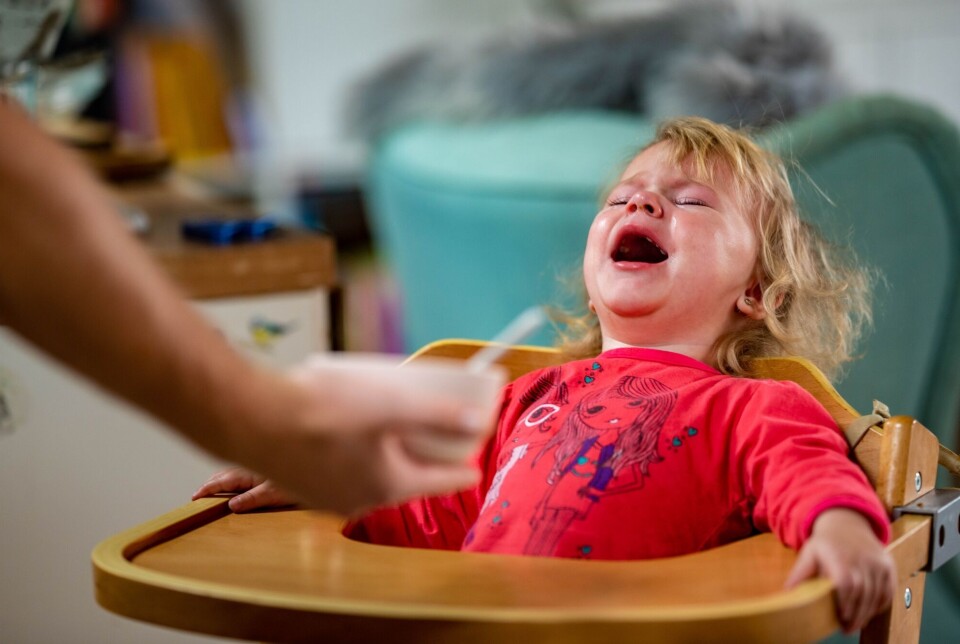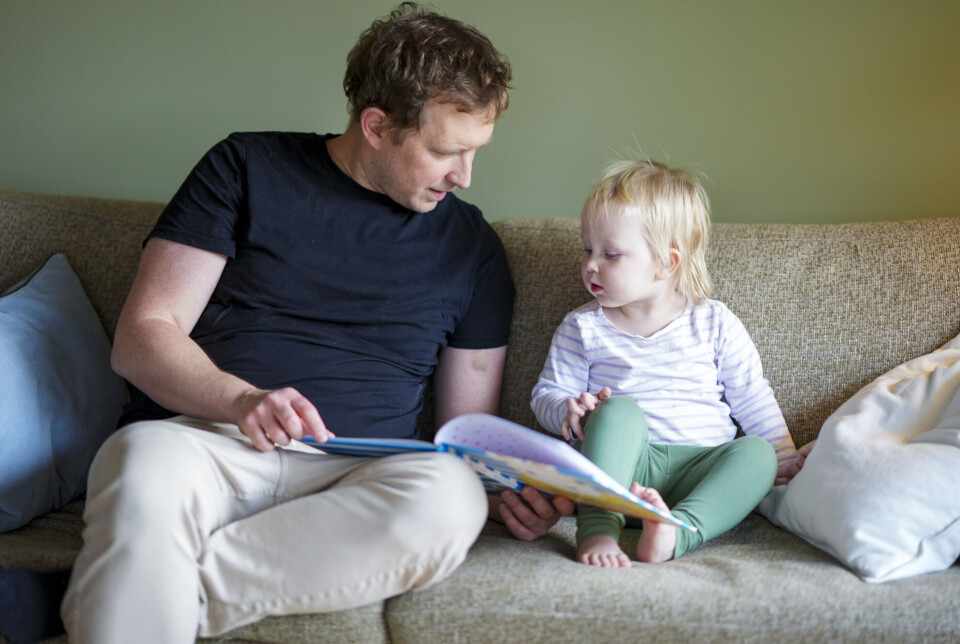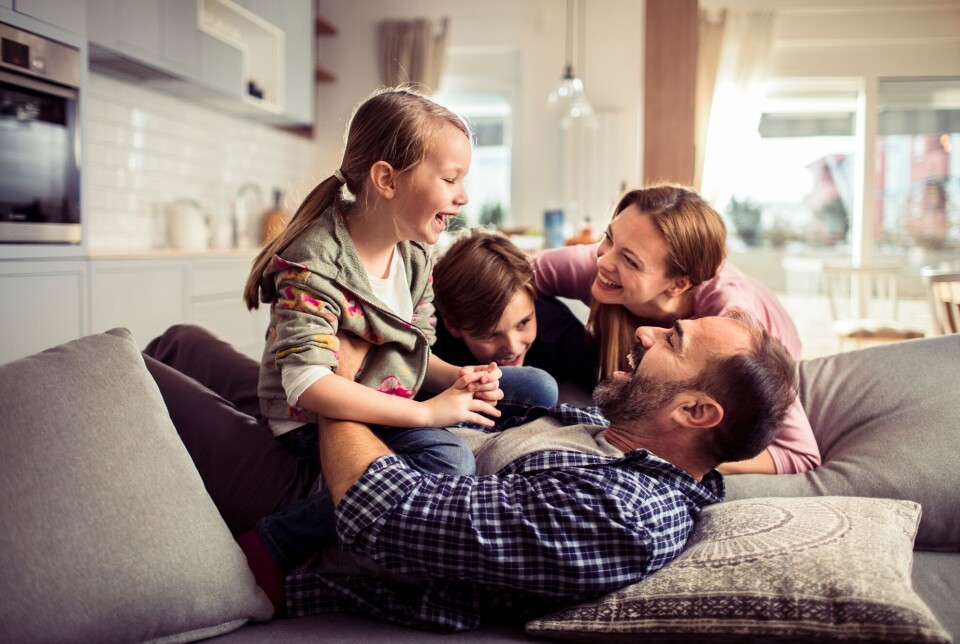
This is what today’s parents do better than previous generations
A lot is written about all the mistakes today's parents make. But how bad is the situation really?
Today's approach to parenting makes children less resilient, psychologist Line Marie Warholm reports in the Norwegian newspaper Aftenposten. She has written an entire book on the topic.
Parents protect their children from the adult world instead of preparing them for it, according to researcher Raquel Herrero-Arias.
Are we having fewer children because we take them too seriously, asks the Norwegian newspaper Morgenbladet, quoting gender equality director Ingun Yssen, who stated that she could never have endured becoming a mother today.
Demanding parents who interfere in their children's school life "cross the line into the extreme," according to a teacher interviewed in VG, a national tabloid newspaper.
Today's parents have gotten a bad reputation.
But is it really that bad?
An emotional revolution
Psychologist Yvonne Severinsen is studying parents in Norway as part of a project at the University of Oslo's Department of Psychology. How do parents relate to their children, and what kind of parenting style do they have?
“What we see is that Norwegian parents are distinctly supportive and are rarely punitive or dismissive,” says Severinsen.
This is a parenting style that stands in stark contrast to the authoritarian parenting of the 1950s. At that time, children were expected to be seen but not heard, and corporal punishment was accepted. Even though corporal punishment of children was banned in Norway in 1972, disciplinary violence was still common into the 1980s, Severinsen explains.
But then something changed.
According to Severinsen, society has undergone a massive transformation in its view of children and the importance of emotions over the past decades, which has also influenced the role of parents.
“The big change is that we now see children from the inside and not just from the outside. It's a small revolution,” she says.
Today's parenting is much better than it was in the past, Severinsen concludes.
“That doesn't mean we don't make mistakes, but things are better now. It's also important to recognise the big picture and appreciate how far we've come,” she says.

Taking children seriously
Modern parents are much better at understanding and acknowledging that children have their own thoughts and feelings – and that these have inherent value.
“There's been a huge shift in parental knowledge, where we now take children more seriously,” says Severinsen.
“We see them as little individuals with their own thoughts and emotions and are genuinely interested in understanding how the world looks from their perspective. This was almost unthinkable just a few decades ago,” she adds.
The parents in Severinsen's study reported that they support their children when they experience negative emotions.

“And we know from research that this is beneficial,” says Severinsen.
A Norwegian study from 2020 found that parents who were good at handling their own emotions and those of their kids had children with fewer behavioural problems.
“By adopting a supportive and exploratory attitude towards children's emotions, we give them the opportunity to understand and manage their feelings in a healthy way,” says Severinsen.
This approach is knwon as validating emotions, which is the opposite of dismissing or punishing emotional expressions.
“Parents who react to a kid's anger or sadness with punishment or dismissal can teach their children that emotions are unimportant or should be suppressed. This can deprive children of the chance to learn about their emotional lives,” she says.
Satisfied with their parents
Critics of modern parenting argue that this development has gone too far. Too much focus on the child’s perspective and emotional validation, and not enough boundaries or resistance.
“I'll be the first to provide some nuance here. It's clear that constantly understanding, validating, and engaging with a child’s emotions can have some drawbacks. Perhaps the pendulum has swung too far, and we risk losing the ability to lead within the family. Children also need boundaries, structure, and safe guidance," says Severinsen.
However, she notes that no solid research confirms that parents have become overly permissive or protective.
“What we do know is that today’s parents tend to have closer and warmer relationships with their children than in the past,” she explains.
In a national survey of adolescents in Norway from 2023, 86 per cent of young people responded that they are satisfied with their parents. Time-use surveys indicate that parents spend more time with their children now than before, even though they work more. Chores like vacuuming can wait.
A survey by the Norwegian organisation Adults for Children found that 87 per cent of parents reported that their children share their joys, sorrows, and worries with them. Additionally, 82 per cent stated that they set clear and firm boundaries for their children.
The best parenting style
Tonje Holt is a researcher at the Norwegian Institute of Public Health's (NIPH), in the Department of Childhood and Families.
“What the research shows clearly and unequivocally is that parents who are more authoritative – both warm and supportive, but also firm – have children who thrive the most and have the best mental health,” she says.

Holt points to numerous studies and summaries that confirm this, such as this report from NIPH.
And we are better at parenting this way today than in the past, although it is difficult to find research that directly compares these practices over time.
However, Holt has identified two studies in her database searches.
Authoritarian parents are out
A Swedish study from 2014 found significant changes over the last 50 years. Children born in 1958, 1981, and 2011 answered questions about the parenting they experienced. The responses revealed a dramatic decline in controlling and authoritarian parenting. Children are increasingly allowed to express anger toward their parents.
The parental role has also shifted from a strict father and nurturing mother to two parents who share responsibilities and decision-making.
These changes occurred primarily between 1981 and 2011.
“The fact that parenting today is more egalitarian, and that fathers are more involved in their children's lives than before, is also a positive societal trend that can foster resilient kids,” says Holt.
In another study, from Spain, researchers compared responses from adult children, their parents, and their grandparents.
The study clearly showed an increase in the authoritative style – warm but firm – across newer generations.
The researchers also found that an authoritarian parenting style – emotionally cold and controlling – was associated with poor health in children. The permissive style, characterised by warmth but few boundaries, yielded mixed results in various studies. In the Spanish study, however, the permissive style performed as well as or better than the authoritative style.

Inherited anxiety
But could today’s parents be taking their warm and understanding parenting style too far, becoming overinvolved and overprotective?
“I’m not entirely sure. Today, there's greater workforce participation among parents than 50 years ago, when mothers were often at home. So, how realistic is it to be that intensely involved?” asks Holt.
For parents who are genuinely overprotective, Holt believes genetics could play a role.
“It could stem from anxiety, and it’s not surprising if the kids are anxious as well. This anxiety might be inherited,” she says.
Research on parenting style at the University of Oslo has also examined genetics. Through twin studies, they found that up to 30 per cent of the way parents respond to their children's emotions may be influenced by inherited traits. These findings have not yet been published, but a scientific article is under review by an academic journal.
Openness creates resilient children
Holt sees many positives in parents being involved in their children's lives.
For example, children today are often included in decision-making processes, which Holt believes is a positive development. While children should not bear the burden of making final decisions, having a say is important.
"There’s also greater openness now about letting children make their own choices regarding careers, relationships, and sexual orientation. I believe this helps create resilient children,” says Holt.
“I think it's an advantage today that parents know their children better than before because of this more open parenting style,” she adds.
Holt works primarily with vulnerable children, whose families face various challenges.
“Most parents in Norway today seem to have a good parenting style. I'm more concerned about those who don't show up for their children,” she says.
Stress is linked to a certain parenting style
Severinsen is also most concerned about families with limited resources.
“We are bombarded with a massive stream of general advice, which creates stress and pressure to be perfect parents. I think this may disproportionately affect parents who are already in difficult circumstances,” she says.
Parenting research at the University of Oslo also shows that stress is linked to less effective parenting styles.
“We see a connection between parents who report high levels of stress related to parenting and those who exhibit negative styles, such as rejection, chaos, and coercion,” Professor Egil Nygaard tells Aftenposten (link in Norwegian).

Adapting to the child
Children are different, and this can also influence how parenting styles affect them.
“Some children are born with a temperament that makes them less impressionable, while others are more vulnerable,” says Severinsen.
“Parenting is a very complex and nuanced process. If we take a broader perspective, one thing we can definitively say is that an authoritarian parenting style – with little warmth and a lot of control – is not good for children. Beyond that, parents need to adapt to their child, and most of them do,” she says.
Today's parents have more opportunities to adapt and make thoughtful choices, according to Severinsen.
“The ideals of parenting practices may shift in different directions, but overall, we're moving in the right direction. Parents deserve recognition and a pat on the back: 'You're doing well, great job!’," she says.
———
Translated by Nancy Bazilchuk
Read the Norwegian version of this article on forskning.no
Related content:

Subscribe to our newsletter
The latest news from Science Norway, sent twice a week and completely free.






































